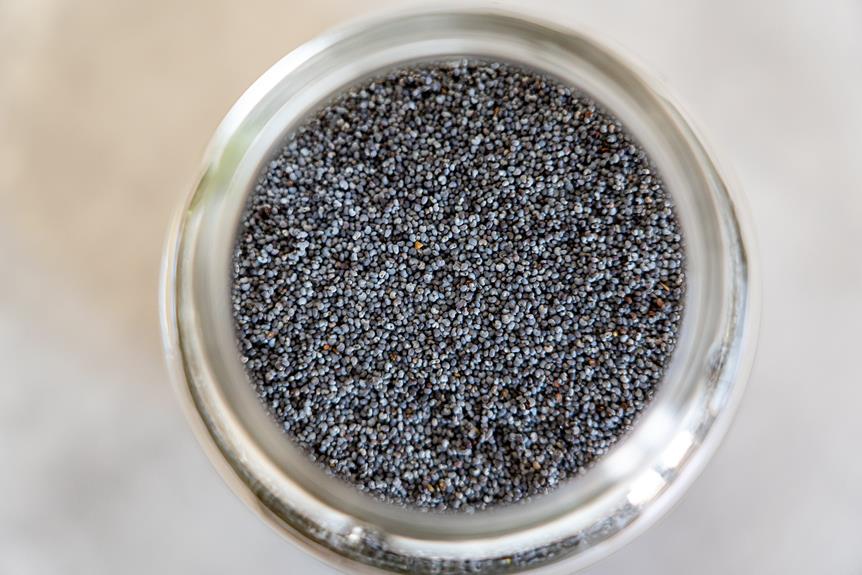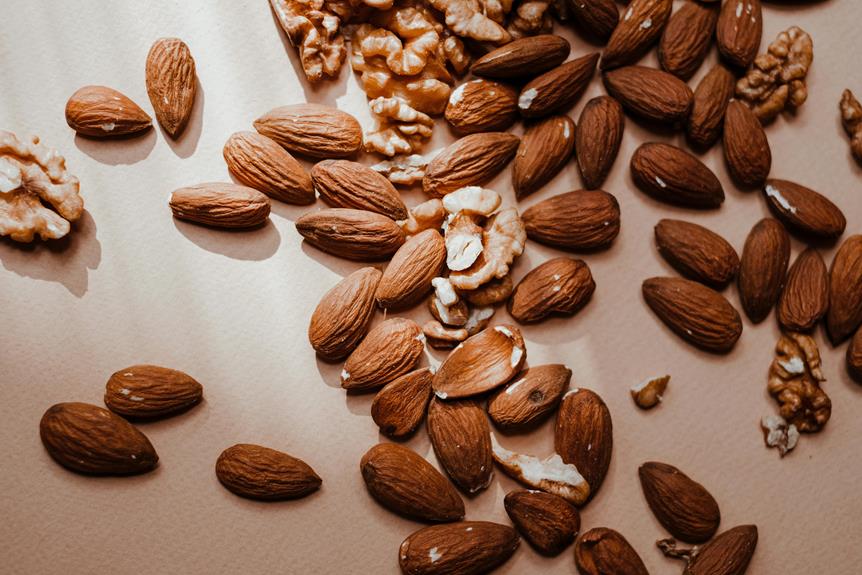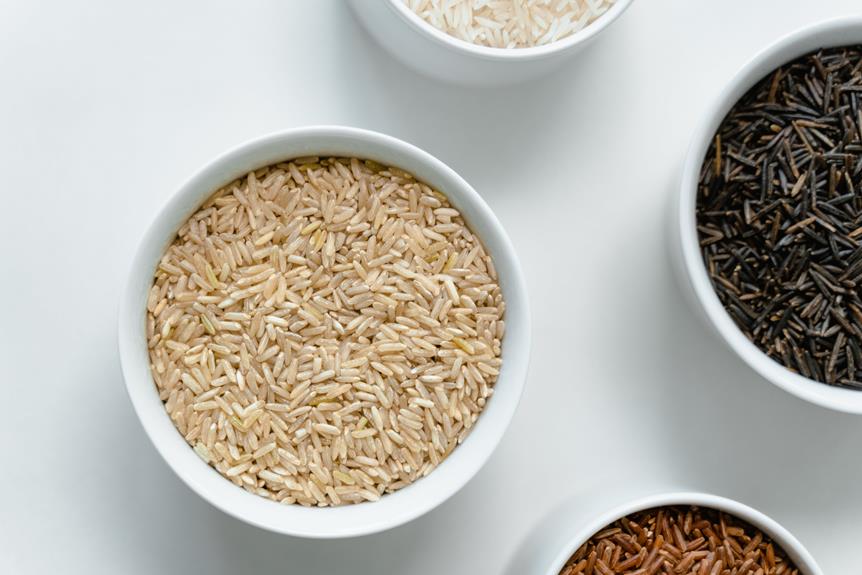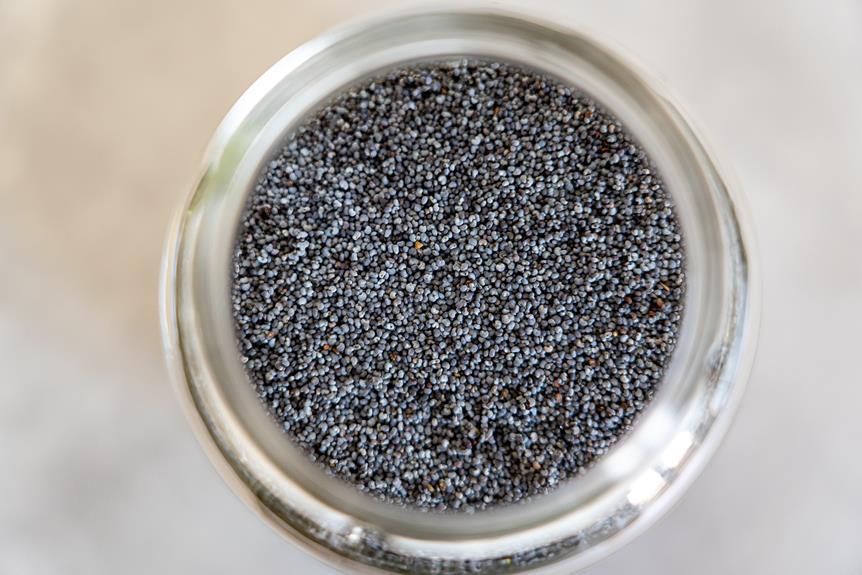Are you tired of dealing with the discomfort and frustration of constipation? Look no further, because we've got 7 trustworthy tips that can provide safe relief. From understanding the importance of dietary fiber to discovering the best sources and incorporating simple lifestyle changes, our tips will help you find the relief you've been searching for. So, if you're ready to say goodbye to constipation and hello to a healthier, happier you, keep reading to uncover these valuable insights.
Key Takeaways
- Including a variety of soluble and insoluble fiber in your diet can provide safe and effective relief from constipation.
- Gradually increasing your fiber intake and staying hydrated can prevent bloating and discomfort.
- Meeting your daily fiber intake not only aids in digestion but also promotes weight management and reduces the risk of chronic diseases.
- Making lifestyle changes such as regular exercise, establishing a bathroom routine, and avoiding processed foods can help relieve constipation and improve overall bowel health.
Importance of Dietary Fiber
Dietary fiber plays a crucial role in maintaining regular bowel movements and preventing constipation. When you consume foods that are rich in fiber, they add bulk to your stools, making them easier to pass. Fiber also helps to soften the stool, preventing it from becoming too hard and difficult to pass. By including adequate amounts of fiber in your diet, you can ensure that waste moves through your digestive system smoothly and efficiently.
Furthermore, dietary fiber acts as a natural laxative by increasing the frequency and regularity of bowel movements. It promotes the contraction of the intestinal muscles, which helps to propel waste out of the body. Without enough fiber in your diet, waste can become stagnant in the colon, leading to constipation and discomfort.
In addition to its role in maintaining regular bowel movements, dietary fiber also promotes overall digestive health. It helps to regulate blood sugar levels by slowing down the absorption of sugars into the bloodstream. This can be particularly beneficial for individuals with diabetes or those at risk of developing the condition.
Moreover, fiber-rich foods provide a feeling of fullness and can aid in weight management. When you consume foods high in fiber, they take longer to digest, keeping you satisfied for longer periods and reducing the chances of overeating.
Types of Dietary Fiber
To understand the different types of dietary fiber, it is important to know that fiber can be classified into two main categories. These categories are:
- Soluble Fiber: This type of fiber dissolves in water and forms a gel-like substance in the digestive system. Soluble fiber can help to lower cholesterol levels and regulate blood sugar levels. Some examples of foods that are high in soluble fiber include oats, barley, legumes, fruits, and vegetables.
- Insoluble Fiber: Unlike soluble fiber, insoluble fiber does not dissolve in water. Instead, it adds bulk to the stool and helps to prevent constipation. Insoluble fiber can be found in foods such as whole grains, nuts, seeds, and the skin of fruits and vegetables.
- Resistant Starch: Resistant starch is a type of dietary fiber that resists digestion in the small intestine and ferments in the large intestine. It acts as a prebiotic, promoting the growth of healthy bacteria in the gut. Resistant starch can be found in foods like green bananas, cooked and cooled potatoes, and legumes.
Understanding the different types of dietary fiber is important because each type has its own unique benefits and can contribute to overall digestive health. By including a variety of both soluble and insoluble fiber in your diet, you can help to prevent constipation, regulate blood sugar levels, and support a healthy gut microbiome.
Next, we will discuss the recommended daily fiber intake and how you can incorporate more fiber-rich foods into your diet.
Recommended Daily Fiber Intake
Now let's talk about the recommended daily fiber intake. How much fiber should you be aiming for? Well, the guidelines suggest that men should aim for about 38 grams of fiber per day, while women should aim for around 25 grams. Meeting these targets can bring you a range of benefits, such as improved digestion, weight management, and reduced risk of chronic diseases.
Fiber Intake Guidelines
For optimal digestive health, it is important to incorporate the recommended daily intake of fiber into your diet. Fiber intake guidelines can vary based on age, gender, and specific health conditions. Here are three important things to keep in mind:
- Aim for 25 to 30 grams of fiber per day: This is the general recommendation for adults. Be sure to consume a variety of high-fiber foods such as fruits, vegetables, whole grains, legumes, and nuts.
- Increase fiber intake gradually: Adding too much fiber to your diet too quickly can cause bloating and discomfort. It's best to increase your intake gradually over a few weeks.
- Stay hydrated: Fiber absorbs water, so it's essential to drink enough fluids throughout the day to help prevent constipation and maintain healthy bowel movements.
Following these fiber intake guidelines can help promote regularity, prevent constipation, and support overall digestive health.
Benefits of Sufficient Fiber
Incorporating the recommended daily intake of fiber into your diet has numerous benefits for your digestive health. Consuming enough fiber can help prevent constipation by adding bulk to your stools and promoting regular bowel movements. It can also help regulate blood sugar levels by slowing down the absorption of glucose, which is especially beneficial for individuals with diabetes. Furthermore, a high-fiber diet can aid in weight management as it provides a feeling of fullness and reduces overeating. Fiber-rich foods can also improve heart health by lowering cholesterol levels and reducing the risk of heart disease. Additionally, a sufficient intake of fiber has been linked to a reduced risk of developing certain types of cancer, such as colorectal cancer. Overall, ensuring that you meet the recommended daily fiber intake can have a significant positive impact on your overall well-being.
How Fiber Relieves Constipation
Adding dietary fiber to your diet can help relieve constipation. Fiber is an essential nutrient that plays a crucial role in maintaining a healthy digestive system. Here's how fiber can help alleviate constipation:
- Promotes regular bowel movements: Fiber adds bulk to your stool, making it easier to pass through the digestive system. It helps stimulate the muscles in your intestines to contract, promoting regular bowel movements.
- Softens the stool: Fiber absorbs water as it passes through the digestive system, making the stool softer and easier to pass. This helps prevent the stool from becoming hard and dry, which can contribute to constipation.
- Increases stool frequency: Consuming an adequate amount of fiber can increase the frequency of bowel movements. It helps move waste through the colon more efficiently, reducing the chances of constipation.
Best Sources of Dietary Fiber
To ensure you are getting an adequate amount of dietary fiber, it is important to know the best sources of fiber-rich foods. Including a variety of these foods in your diet can help promote regular bowel movements and prevent constipation. Some of the best sources of dietary fiber include fruits, vegetables, whole grains, legumes, and nuts.
Fruits are an excellent source of fiber, with options like apples, pears, berries, and oranges being particularly high in fiber. Aim to include a serving or two of fruit in your daily diet. Vegetables are another great source of fiber, especially leafy greens, broccoli, carrots, and Brussels sprouts. Adding these vegetables to your meals and snacks can help increase your fiber intake.
Whole grains, such as oats, brown rice, quinoa, and whole wheat bread, are also rich in dietary fiber. Opt for whole grain options whenever possible to reap the most benefits. Legumes, including beans, lentils, and chickpeas, are not only high in fiber but also provide a good source of protein. Incorporating these legumes into your meals can help boost your fiber intake.
Lastly, nuts, such as almonds, walnuts, and pistachios, are a delicious and nutritious source of fiber. Sprinkle them on top of salads, yogurt, or enjoy them as a snack to increase your fiber intake.
Tips for Increasing Fiber Intake
One easy way to increase your fiber intake is by incorporating more fiber-rich foods into your daily meals and snacks. By making a few simple changes to your diet, you can easily meet your daily fiber needs and alleviate constipation. Here are some tips to help you increase your fiber intake:
- Start your day with a high-fiber breakfast: Choose whole grain cereals, oatmeal, or whole wheat toast instead of refined grain options. Add some fruits like berries, bananas, or apples for an extra fiber boost.
- Include more legumes and beans in your meals: Lentils, chickpeas, black beans, and kidney beans are all excellent sources of fiber. Add them to soups, salads, or use them as a base for vegetarian dishes.
- Snack on fiber-rich foods: Instead of reaching for processed snacks, opt for fiber-filled options such as almonds, pistachios, or air-popped popcorn. These snacks will not only provide you with a fiber boost but also keep you feeling full and satisfied.
Incorporating these changes into your daily routine can help you increase your fiber intake and promote regular bowel movements. Remember to drink plenty of water along with your increased fiber intake to help soften your stool and prevent any discomfort. However, it's important to note that increasing your fiber intake too quickly can cause bloating or gas. Gradually increase your fiber intake over a few weeks to allow your body to adjust. If you have any underlying medical conditions or concerns, it's always best to consult with a healthcare professional before making significant changes to your diet.
Additional Lifestyle Changes for Constipation Relief
To further alleviate constipation, consider implementing some additional lifestyle changes into your routine. These changes can help promote regular bowel movements and prevent future episodes of constipation. One important lifestyle change is to increase your physical activity. Regular exercise stimulates the muscles in your intestines, helping to move waste through your digestive system more efficiently. Aim for at least 30 minutes of moderate-intensity exercise, such as brisk walking or cycling, on most days of the week.
Another lifestyle change that can be beneficial is to establish a regular bathroom routine. Try to set aside a specific time each day to sit on the toilet, even if you don't feel the immediate urge to go. This can help train your body to have regular bowel movements. Make sure to take your time while on the toilet and avoid straining, as this can worsen constipation.
Additionally, it is important to stay hydrated by drinking plenty of water throughout the day. Dehydration can contribute to constipation, so aim to drink at least 8 cups (64 ounces) of water daily. You can also include other fluids in your diet, such as herbal tea or clear broth, to help maintain hydration.
Dietary changes are also key in relieving constipation. Increase your intake of fruits, vegetables, and whole grains, as these are rich in dietary fiber that can promote regular bowel movements. Avoid processed foods, which are often low in fiber and can contribute to constipation.
Frequently Asked Questions
Can Dietary Fiber Help With Other Digestive Issues Besides Constipation?
Dietary fiber can indeed help with other digestive issues besides constipation. It acts as a natural regulator, promoting healthy digestion and preventing problems like diarrhea and bloating. By adding more fiber-rich foods to your diet, such as fruits, vegetables, and whole grains, you can improve overall gut health. Fiber also aids in weight management and can lower the risk of developing certain chronic conditions like heart disease and diabetes. So, incorporating fiber into your diet has multiple benefits for your digestive system.
Are There Any Side Effects or Risks Associated With Consuming Too Much Dietary Fiber?
Are there any side effects or risks associated with consuming too much dietary fiber? Yes, there can be. If you consume an excessive amount of fiber, you might experience bloating, gas, and abdominal discomfort. It's important to gradually increase your fiber intake and drink plenty of water to minimize these potential side effects. Additionally, consuming too much fiber without sufficient fluid intake can lead to a blockage in your digestive system. Moderation is key when it comes to dietary fiber.
Can Children Safely Consume the Recommended Daily Fiber Intake?
Yes, children can safely consume the recommended daily fiber intake. It is important for their overall health and digestion. Fiber helps prevent constipation and promotes regular bowel movements. However, it is crucial to introduce fiber gradually to avoid any potential discomfort or gas. Encourage your child to eat foods like fruits, vegetables, whole grains, and legumes, which are rich in fiber. Remember to also ensure they drink plenty of water to aid in digestion.
How Long Does It Typically Take for Fiber to Relieve Constipation?
Typically, it takes a few days for fiber to relieve constipation. When you increase your fiber intake, it adds bulk to your stool, making it easier to pass through your digestive system. However, the exact time it takes may vary from person to person. It's important to stay consistent with your fiber intake and drink plenty of water to help the fiber work effectively. If you're experiencing persistent constipation, it's best to consult with a healthcare professional.
Are There Any Dietary Restrictions or Considerations for Individuals With Certain Medical Conditions When Increasing Fiber Intake?
When increasing your fiber intake, it's important to consider any dietary restrictions or medical conditions you may have. Some medical conditions, like diverticulitis or Crohn's disease, may require you to limit your fiber intake. Additionally, certain medications can interact with fiber supplements, so it's always a good idea to consult with your healthcare provider before making any major changes to your diet. They can provide personalized recommendations based on your specific medical needs.




